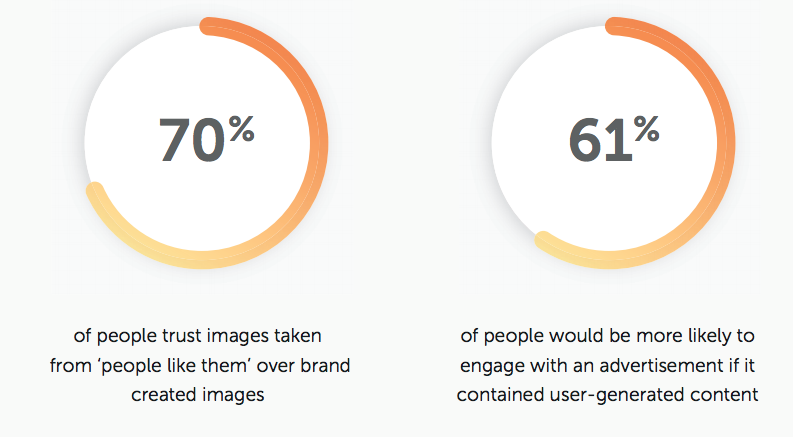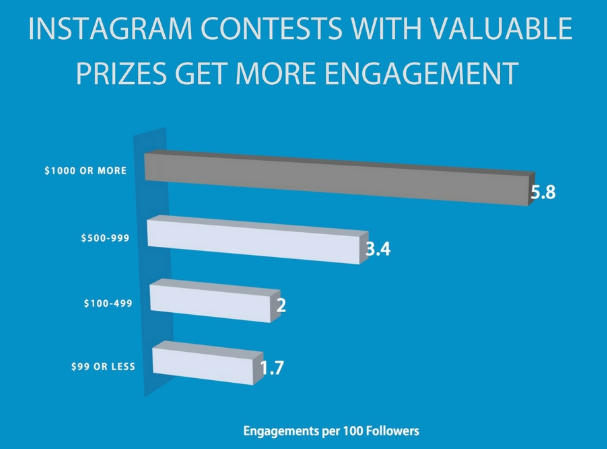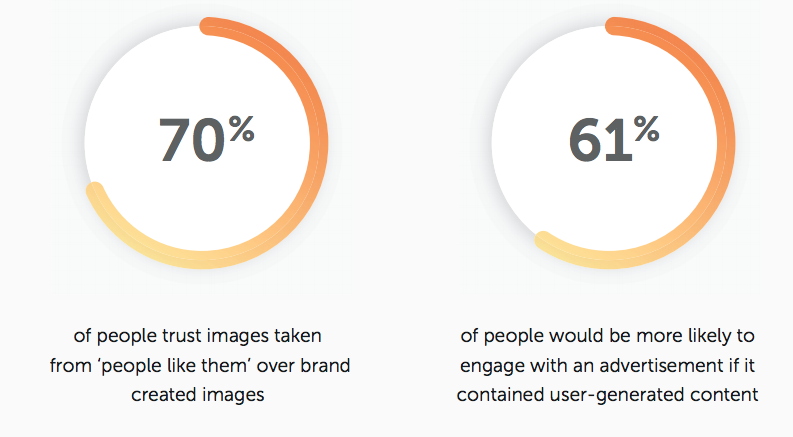The best promotions give something away to participants. Promote your contest You’ve launched your contest, posted the rules, and set a deadline. Tell them to share the rules, set a deadline, and promote the hashtag. The idea behind this strategy is to create social proof: People are more likely to trust and follow recommendations from real people whom they follow on social media. They’ll use the same hashtag, entry rules, and deadline you’ve established. Create a new hashtag, deadline, and prize for them to give away. Now more people can participate even if they don’t want to follow your brand. After running several contests, you’ll be able to tell which ones had the highest participation. It’s a great place to encourage user-generated content, and it promotes brand loyalty: 53% of people who follow brands on social media are more loyal to those companies. What platforms does your brand use to run contests that encourage user-generated content?
Are you looking for a new way to spice up your marketing strategy?
Your current promotions may be effective for now, but you need to mix things up. After a while, using the same marketing tactics over and over again gets stale.
Promotional contests are one of my favorite ways to keep an audience engaged.
This is a great opportunity for you to increase brand awareness and even build hype for a new product launch.
The best promotions give something away to participants.
There are a few different types of such promotions.
Contests require some type of skill. People who enter a contest will need to put forth some type of effort in order to win. The winner of a contest gets selected by judges or through a voting system.
This differs from a lottery or sweepstakes.
Sweepstakes do not require any skill whatsoever.
The winners of sweepstakes get drawn randomly, based on luck. For example, you could randomly select one of your Instagram followers as a winner just because they follow your brand’s account.
A lottery requires a participant to purchase something to be entered into a draw.
Today, I won’t focus on sweepstakes or lotteries.
Contests are a better alternative because if you set them up properly, they will encourage user-generated content (UGC).
User-generated content increases the chances that your audience will engage with your advertisements:

As you can see from these numbers, encouraging users to share images will be beneficial as well. It’s only natural to use this information to your advantage when you’re setting up a contest.
If you have never run a contest before, you may not know where to start. That was my inspiration for writing this guide.
I’ll explain how you can run a profitable contest that encourages user-generated content.
As a result, you’ll be able to generate more leads and ultimately increase your profits. Here’s what you need to do.
Pick a prize
The first step in running a contest is determining what the winner will get.
This may sound simple, but it still requires some thought on your end. The more valuable the product, the more likely people will participate.
For example, if you’re giving away a t-shirt, it won’t get anyone very excited. But if the contest winner receives something like a new camera, drone, or pair of sneakers, it’s much more enticing.
I’m not saying you need to give away the most expensive product your company sells, but make sure your prize is worth the time and effort required for people to enter.
This will help you get greater participation. Just look at how the value of your prize impacts the engagement rates:

Your prize also needs to be appropriate. For example, let’s say you have a business that primarily targets teenagers. You probably shouldn’t be running a contest for a free trip to Las Vegas.
It’s not appropriate for your audience, and it doesn’t speak to them. Instead, giving away one of your newest products is a much more reasonable prize idea to consider.
Make sure your prize is related to your marketing goals.
Ask yourself what you’re trying to accomplish and promote with each contest: a product, service, or event. The prize should align with these goals as opposed to being a random giveaway item.
Establish the rules
Your contest needs to have clearly established rules.
Explain how people can enter to win. Come up with a deadline for entries.
Narrow down the eligibility of your contest, based on things such as age or location. For example, depending on the prize and your brand, you may be offering the prize only to residents of the United States who are at least 21 years old.
Let people know that purchases aren’t required to enter and that making a purchase does not increase the chances of winning the contest.
The criteria participants are being judged on need to be clear as well. Here are some examples to consider:
- best photo based on judges’ discussion
- photo with the most likes
- comment with the most likes
- highest number of retweets
- most number of shares
I like it when brands use criteria such as likes or shares to determine the winner as opposed to relying on a judge’s decision. That way it’s clear to everyone who won, and people won’t think you’re playing favorites. But I’ll leave that for you to decide.
You also need to share the odds of winning, privacy laws for revealing the identity of the contest winner, and the date and time the winner will be announced.
All of this needs to be clear so that it’s fair and everyone understands the rules. Otherwise, there could be some confusion.
For example, let’s say you run a contest in which the winner is determined by the comment with the highest number of likes. But you forget to set a deadline.
You pick a winner, but a few weeks later someone else gets more likes on a new comment. How will you handle that?
You won’t take a prize away from someone who already won. But you won’t want to tell the other person it’s too late because it could hurt your relationship with them.
You may be forced to give away multiple items. This confusion will be avoided if the rules are clearly established.
Select a platform
How will you run the contest?
- Snapchat
- Website
All these options may seem viable, but remember, you’re trying to encourage user-generated…

COMMENTS